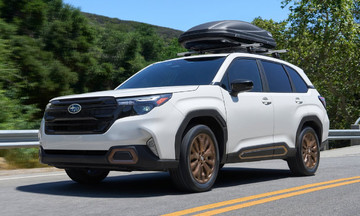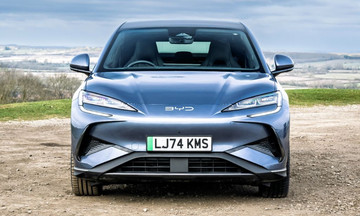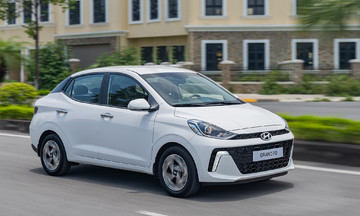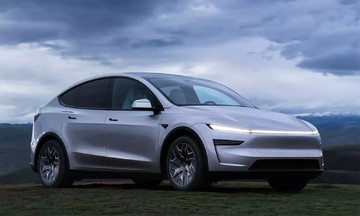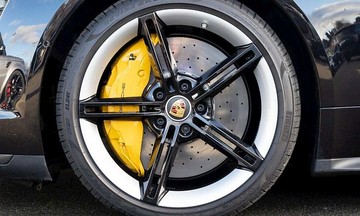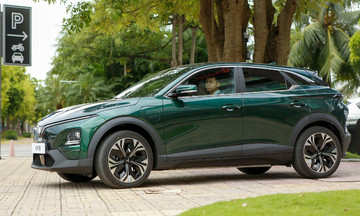What is ethanol gasoline?
Ethanol gasoline is a fuel containing ethanol alcohol (C2H5OH), the same type of alcohol found in beverages like beer and wine. This fuel is used in internal combustion engines as a biofuel additive to regular gasoline.
Ethanol gasoline is typically labeled with an "E" followed by a number indicating the percentage of ethanol in the blend by volume. For example, E85 is a blend of 85% anhydrous ethanol and 15% gasoline.
Which countries use ethanol gasoline?
E10 gasoline (10% ethanol) or lower is commonly used as fuel for internal combustion engine vehicles in more than 20 countries worldwide, led by the US, where ethanol accounted for 10% of the country's gasoline fuel supply in 2011.
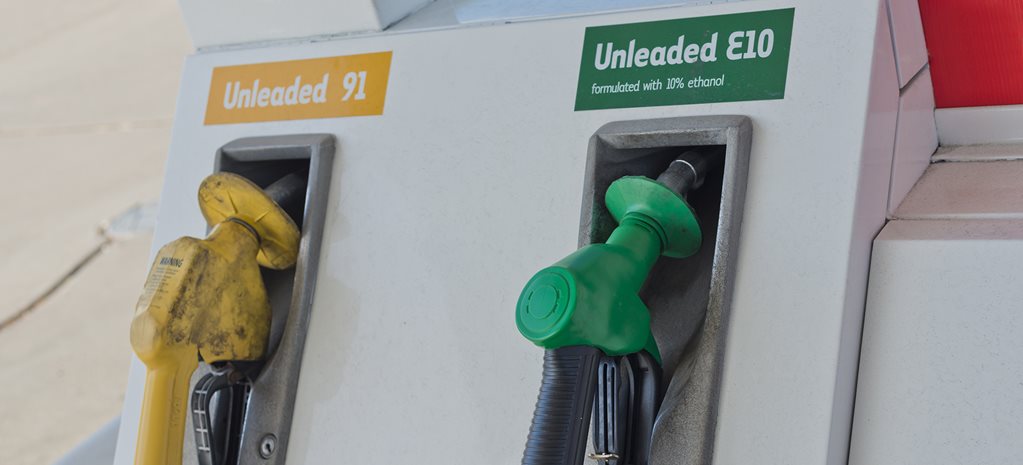 |
E10 gas pump (right) in the US. Photo: Energi |
E10 gas pump (right) in the US. Photo: Energi
Meanwhile, E85 gasoline has been used in the US and Europe for flex-fuel vehicles. Hydrous ethanol gasoline E15 (called hE15) has been researched as a fuel for gasoline-powered cars in the Netherlands.
In addition, E20 to E25 gasoline has been used in Brazil since the late 1970s. Notably, Brazil also used E100 gasoline (about 95% ethanol and 5% water) at this time to address energy security issues related to the first oil crisis. As of 2006, regulations for blending ethanol into vehicle fuel have been enacted in at least 36 states/provinces and 17 countries, mostly requiring a 10-15% ethanol blend.
In Vietnam, E5 gasoline (containing 5% ethanol) has been used since 12/2025, and replaced RON 92 in 2018. The Ministry of Industry and Trade is currently conducting research to advise the government on issuing a roadmap for the use of E10 gasoline, expected from 1/1/2026.
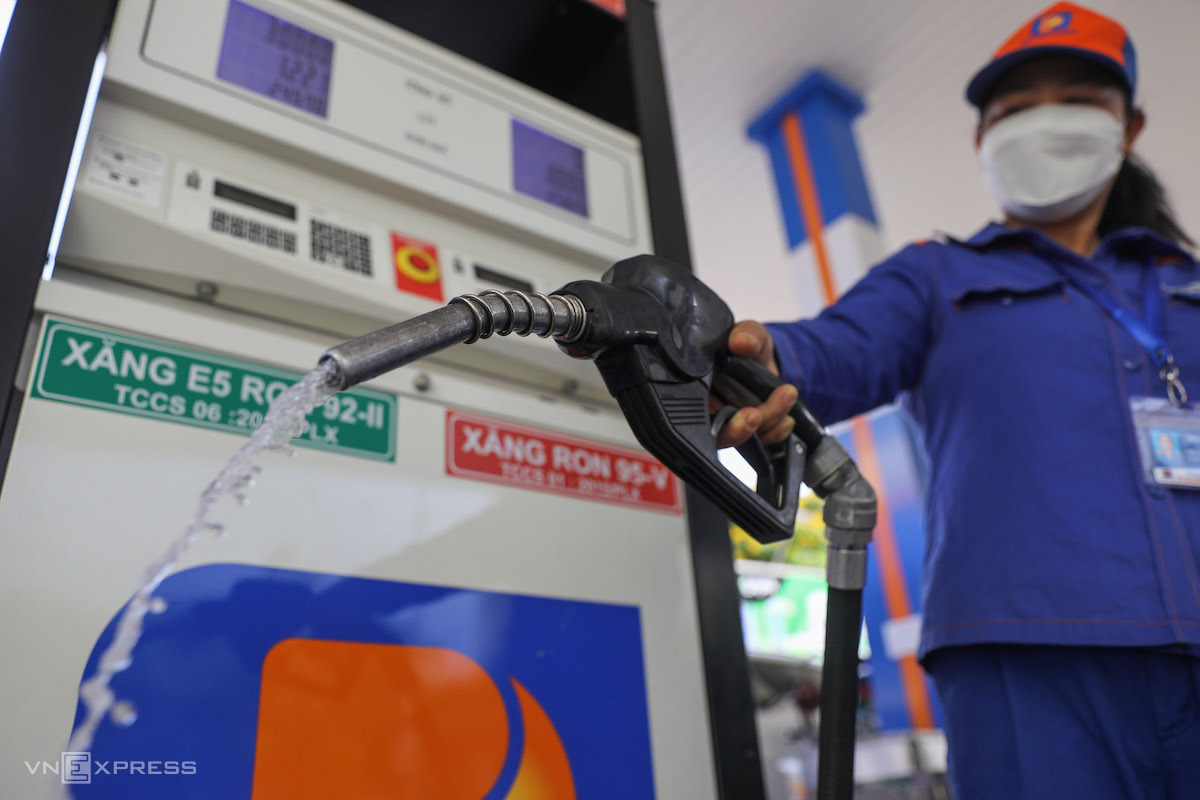 |
Staff at a Petrolimex E5 RON 92 and RON 95 gas pump. Photo: Anh Tu |
Staff at a Petrolimex E5 RON 92 and RON 95 gas pump. Photo: Anh Tu
Why use ethanol gasoline?
E10 or lower gasoline is the most common because it can be used in most vehicles without any modifications to the engine or fuel system. When the ethanol ratio is higher than 10%, vehicles need adjustments to components like the carburetor, fuel injection, fuel pump, fuel filter, and ignition system to supply more fuel to the engine, as pure ethanol contains only about two-thirds of the energy compared to the same volume of pure gasoline. Therefore, in theory, using ethanol as vehicle fuel will reduce the distance traveled per unit of fuel.
However, studies show that the fuel consumption increase when using E10 gasoline is minimal, only 1-3%, according to the Royal Automobile Association of South Australia in 2004. Furthermore, a 2011 study by the VTT Technical Research Centre of Finland showed almost no difference in fuel consumption under normal driving conditions between 95E10 and 98E5 ethanol gasoline compared to regular gasoline.
In return, the benefit of E10 gasoline, as well as other ethanol gasoline blends, is a 20-30% reduction in carbon monoxide (CO) emissions and about 2% reduction in carbon dioxide (CO2) emissions compared to regular gasoline under suitable conditions, according to a 2005 study by the US Department of Energy.
Does E10 gasoline damage vehicles?
Using properly formulated ethanol gasoline will not harm the engine or fuel system. Most modern vehicles are designed to run on E10 or lower gasoline. The owner's manuals or fuel caps on each vehicle provide recommendations for the ethanol ratio in gasoline so the vehicle can operate normally.
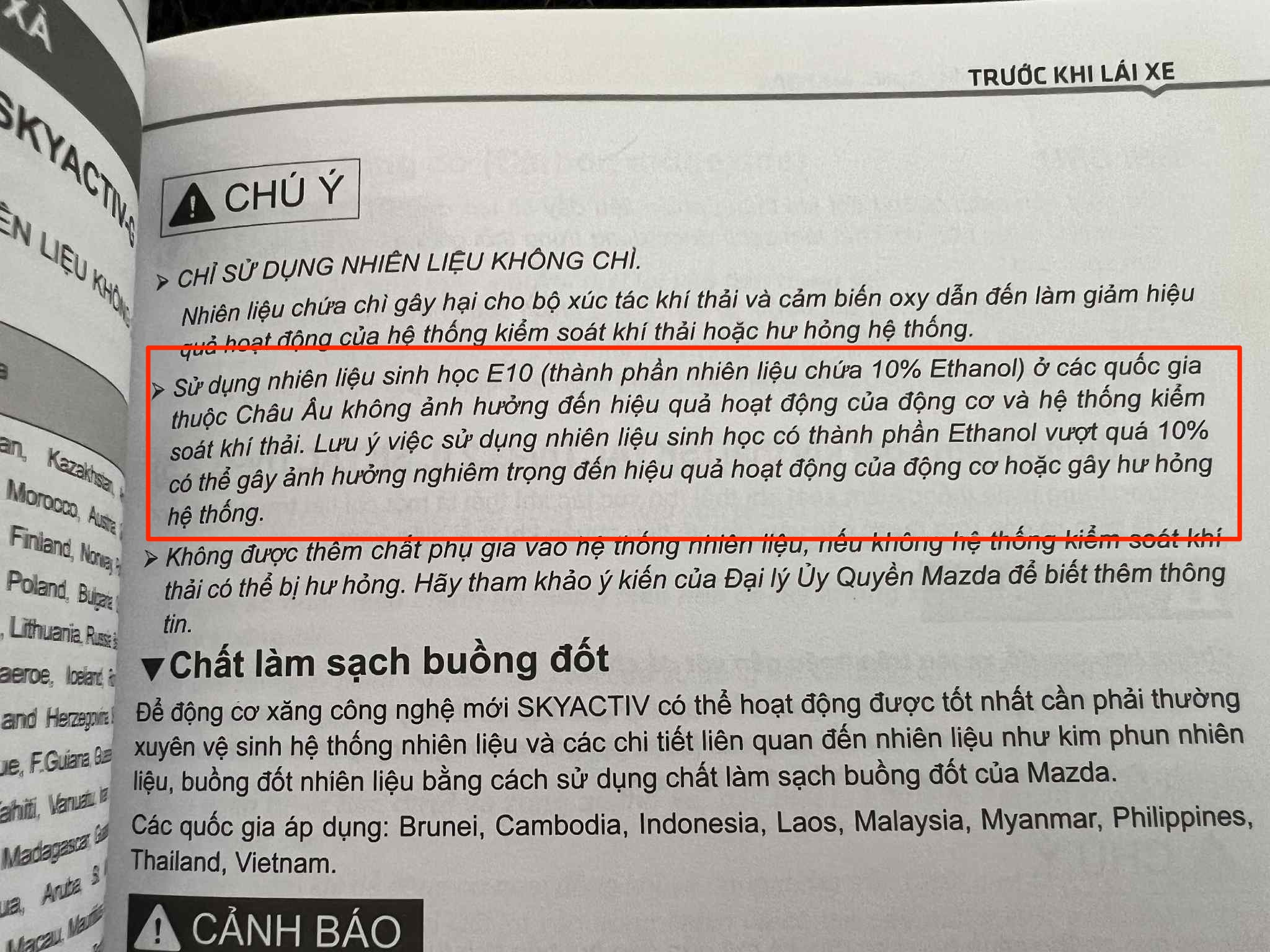 |
Recommendation for the use of E10 gasoline from a Japanese car model in the owner's manual. Photo: Ho Tan |
Recommendation for the use of E10 gasoline from a Japanese car model in the owner's manual. Photo: Ho Tan
For example, with the above instructions, the car is guaranteed to operate stably with E10 in European countries. However, this also means that the manufacturer has not conducted any research on the use of E10 in countries outside of Europe. Therefore, theoretically, the engine could be affected if the E10 source used is not up to standard.
"If E10 is produced to the correct standards, newer vehicles can use it without problems. If the content is higher, the alcohol can corrode engine components, fuel tanks, fuel lines and affect engine performance," said a technical expert at an automotive company.
For older vehicles not designed for ethanol-containing fuels, using ethanol gasoline can harm the engine because ethanol is hygroscopic, leading to corrosion of fuel lines, injectors, and other components. Additionally, ethanol is a solvent that can cause the rubber materials in fuel lines to decompose, leading to brittleness and premature cracking.
Ho Tan



